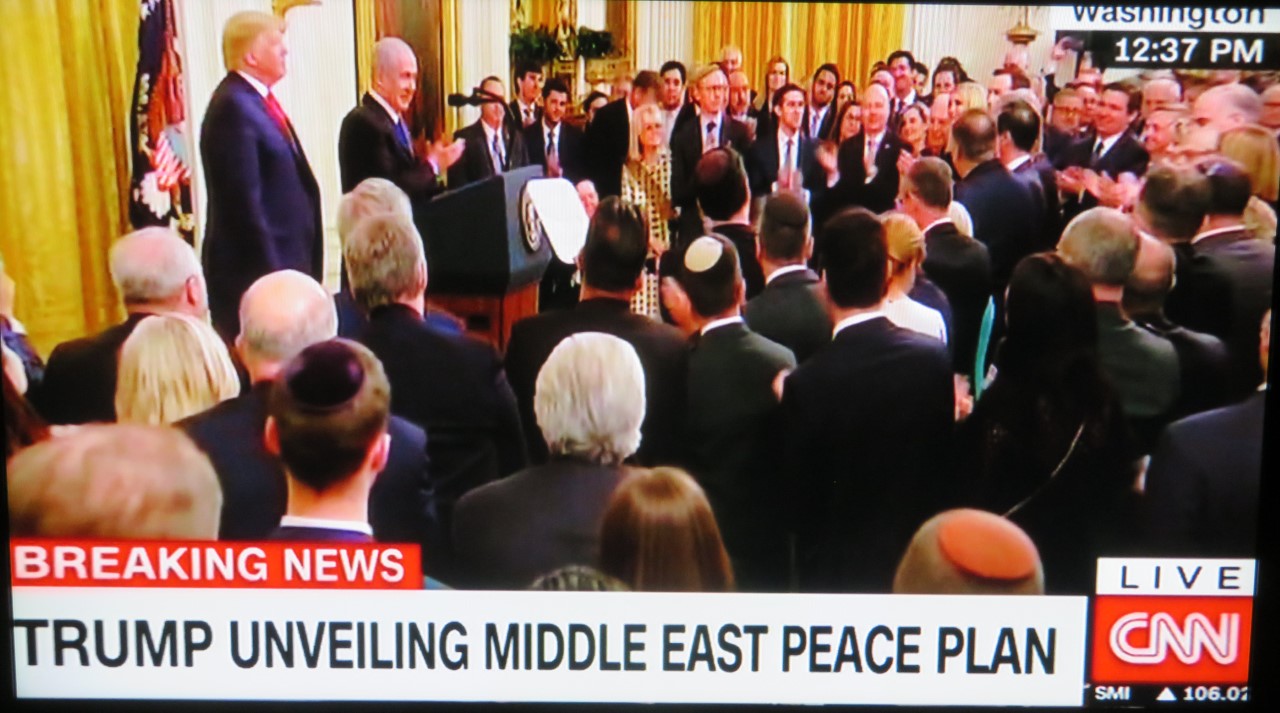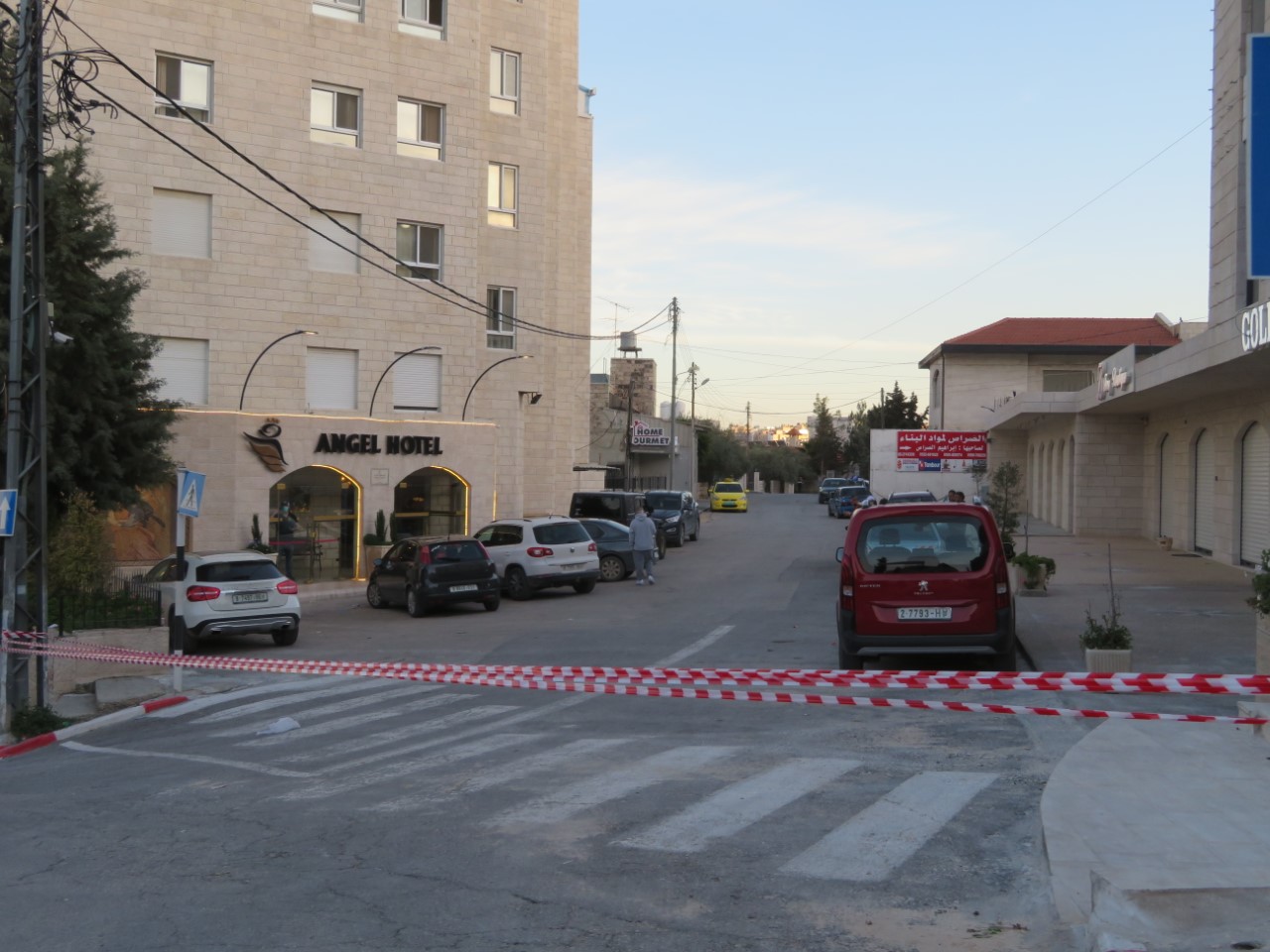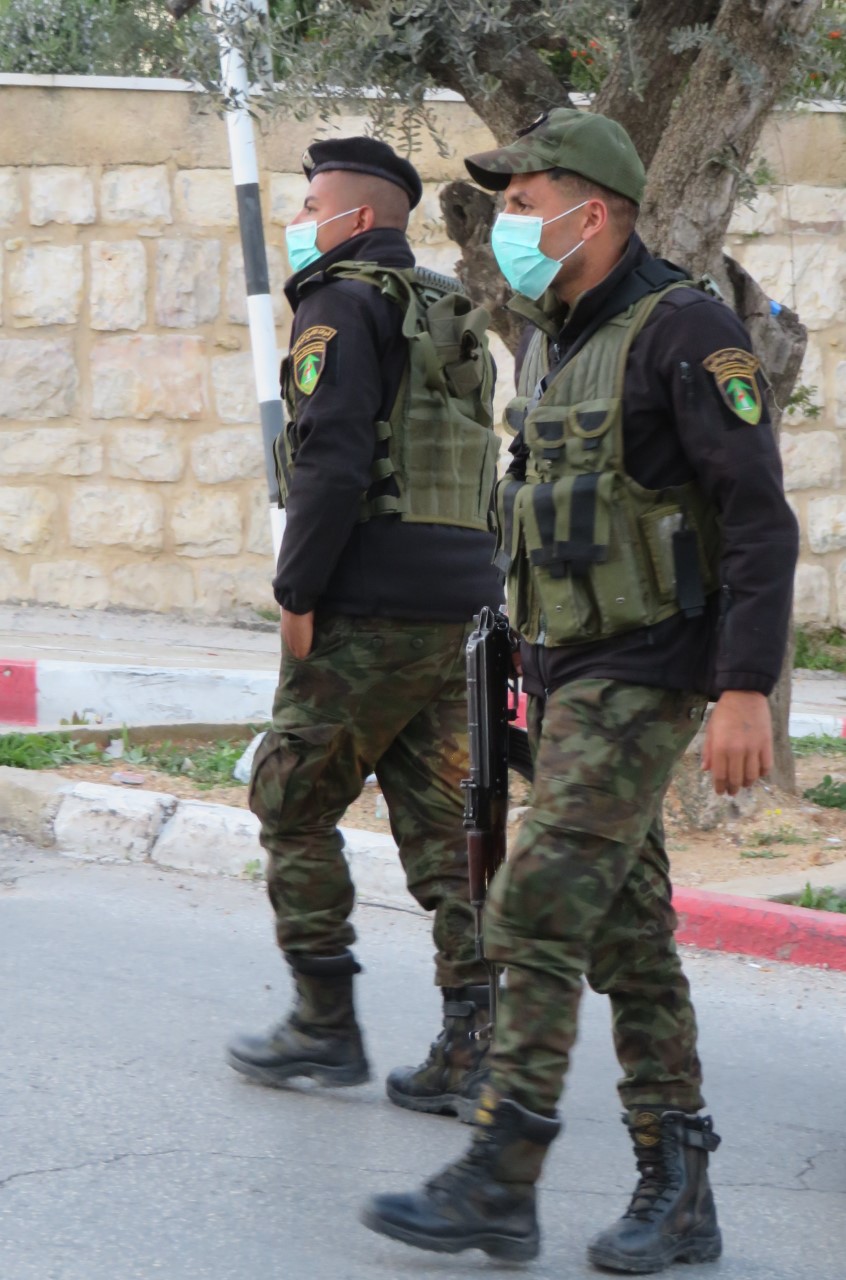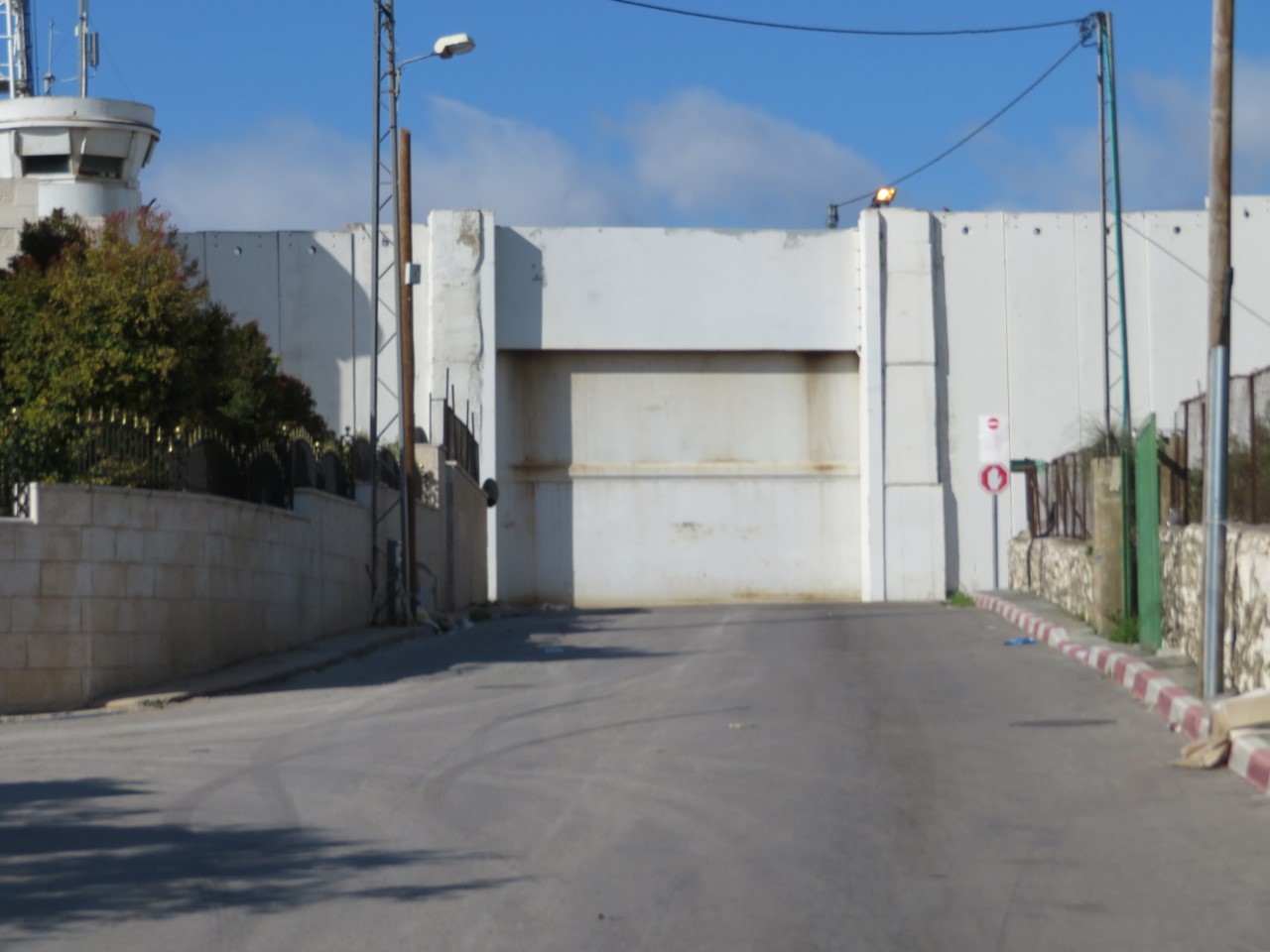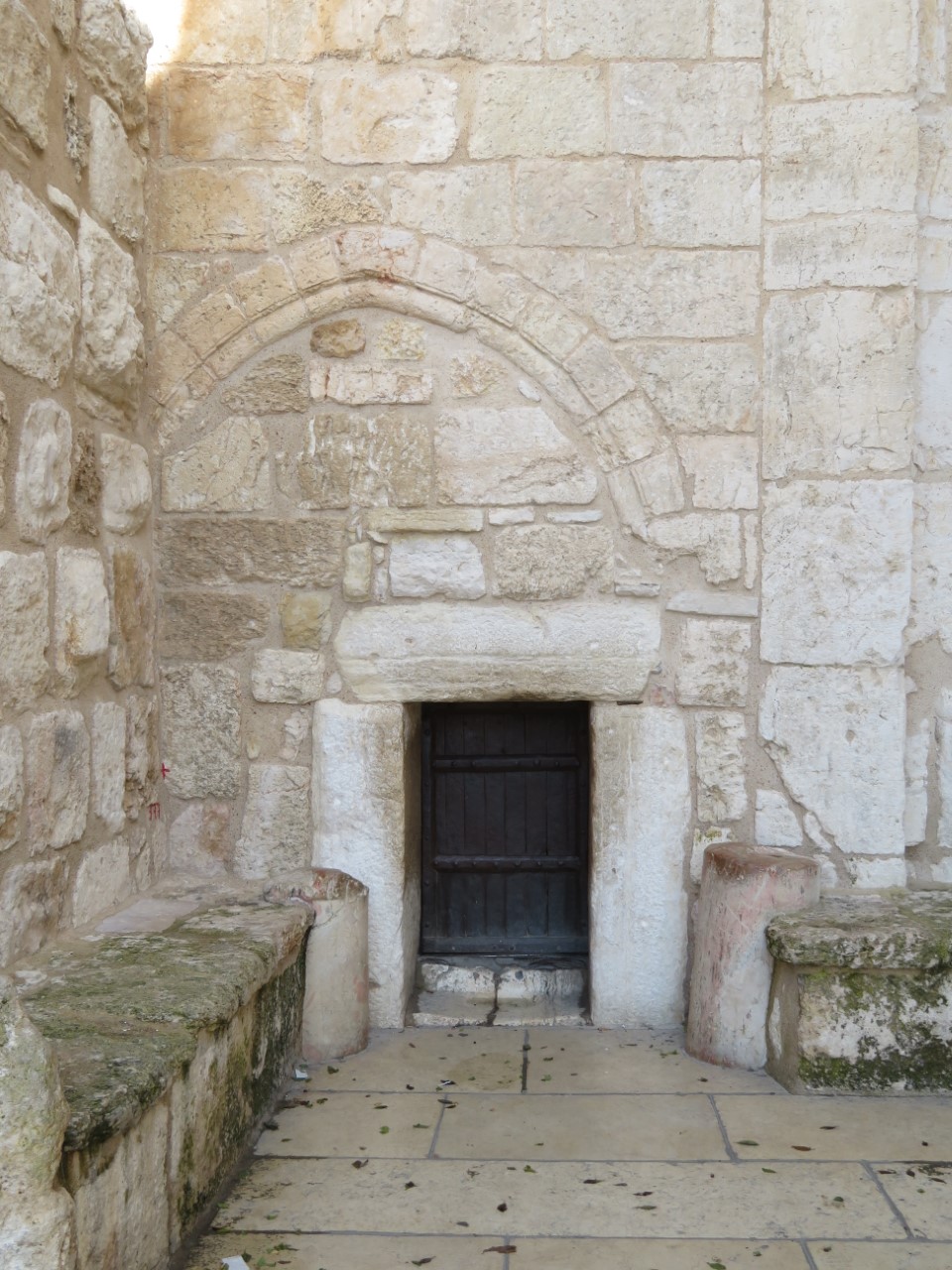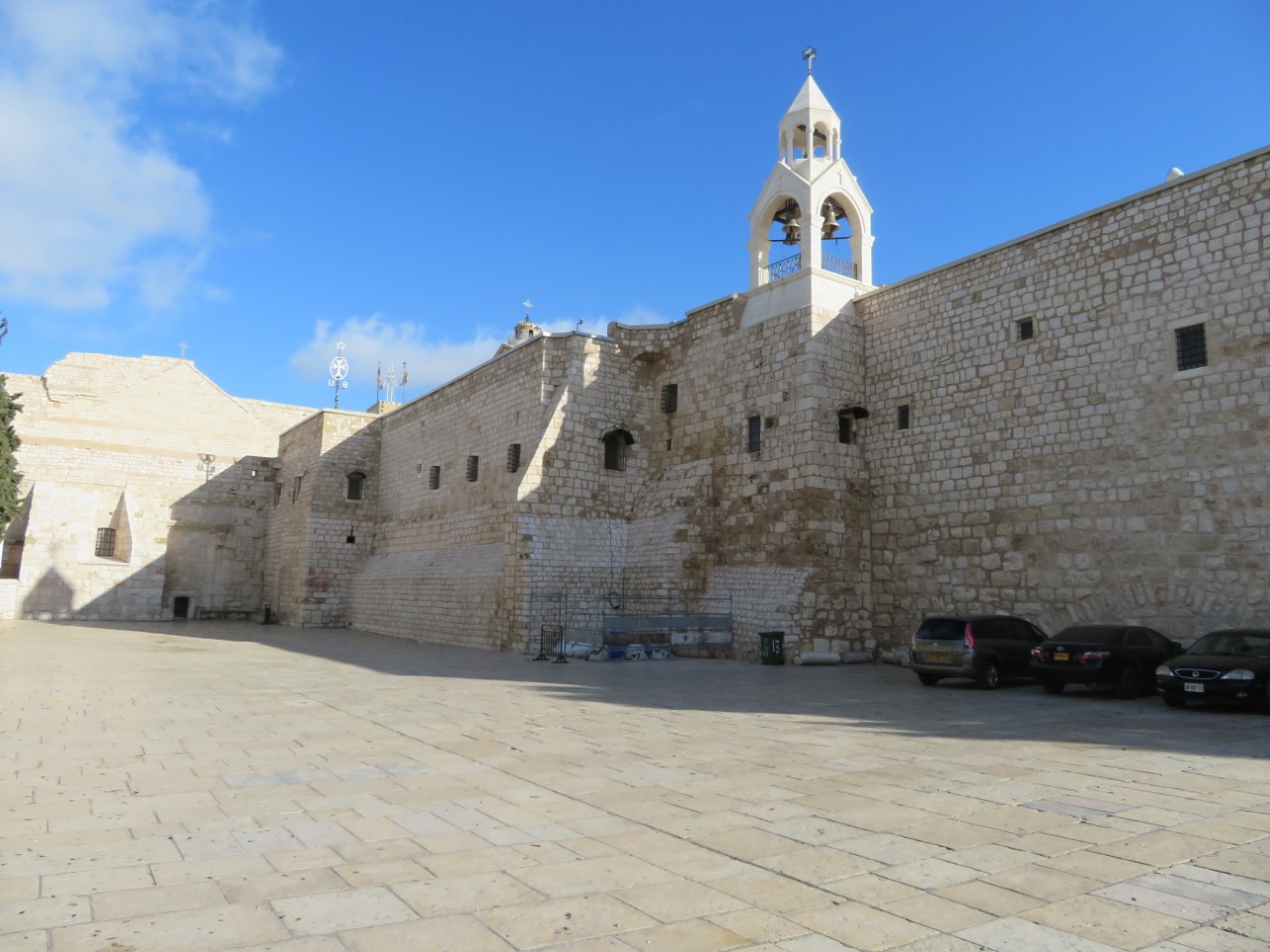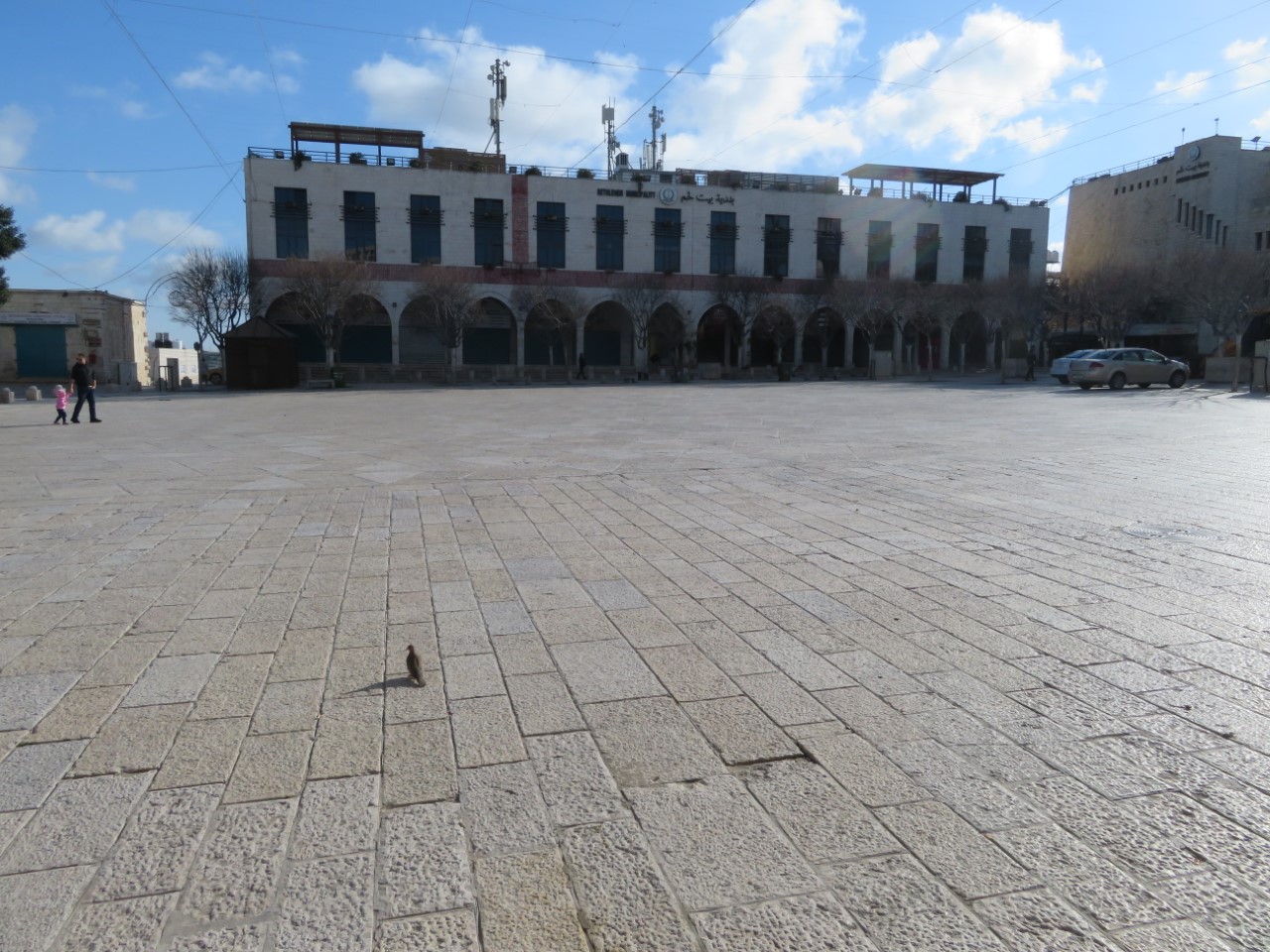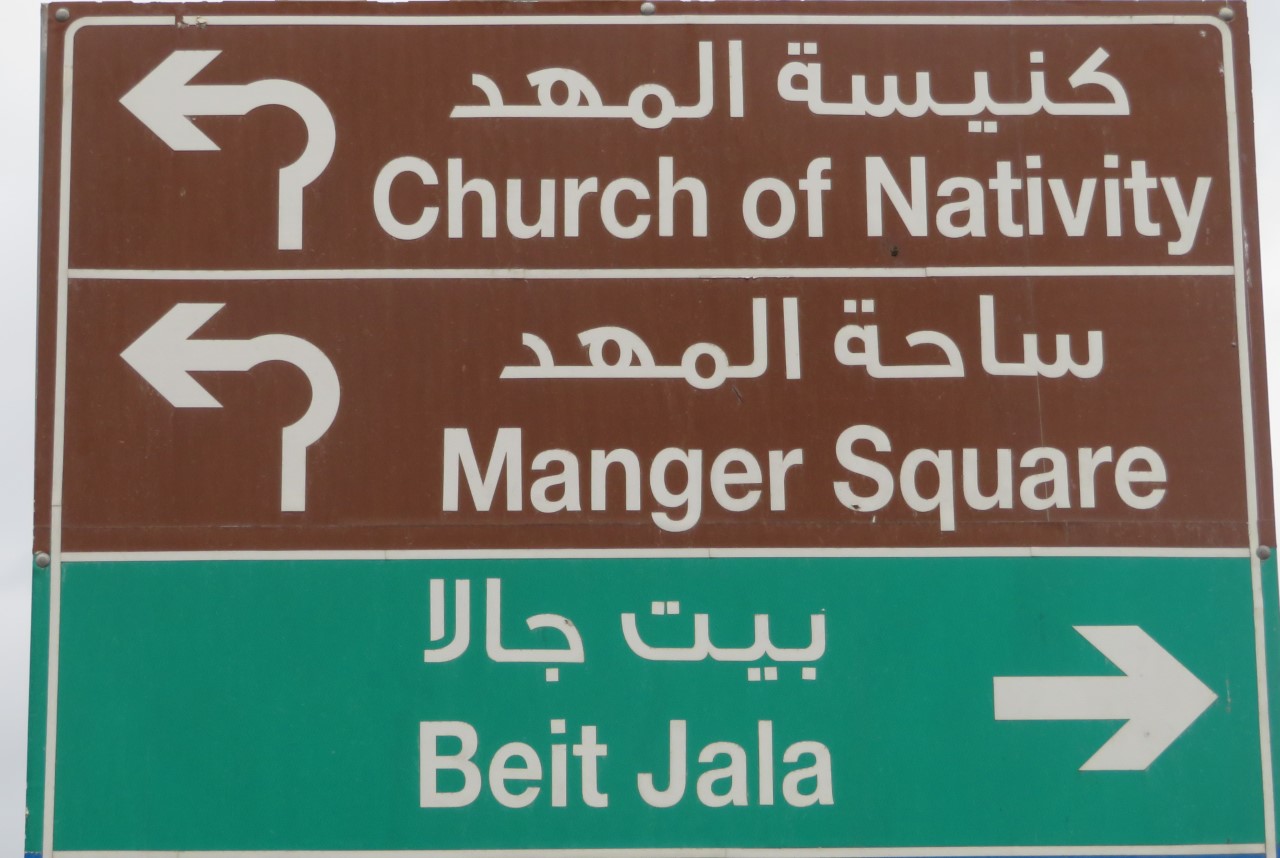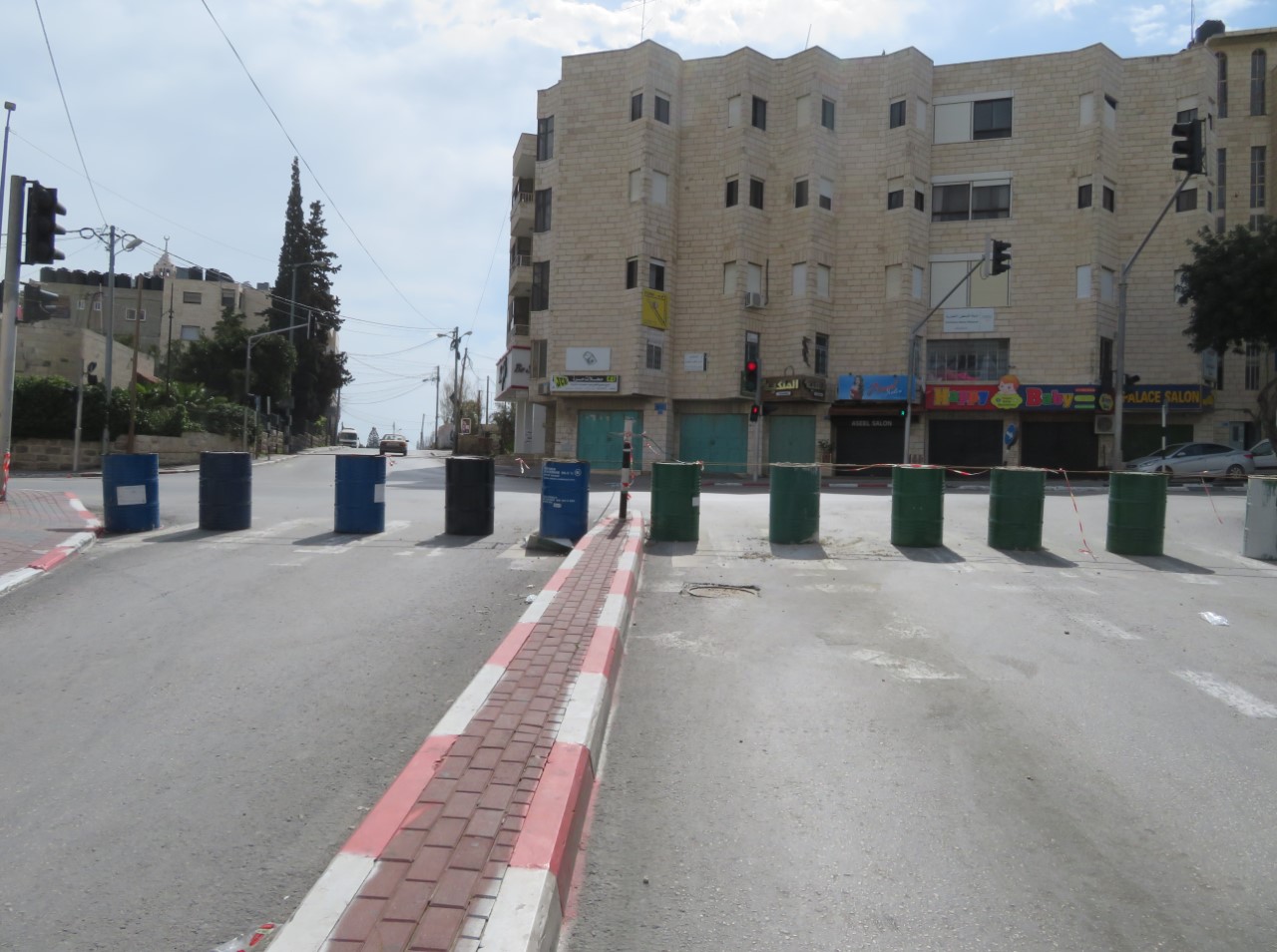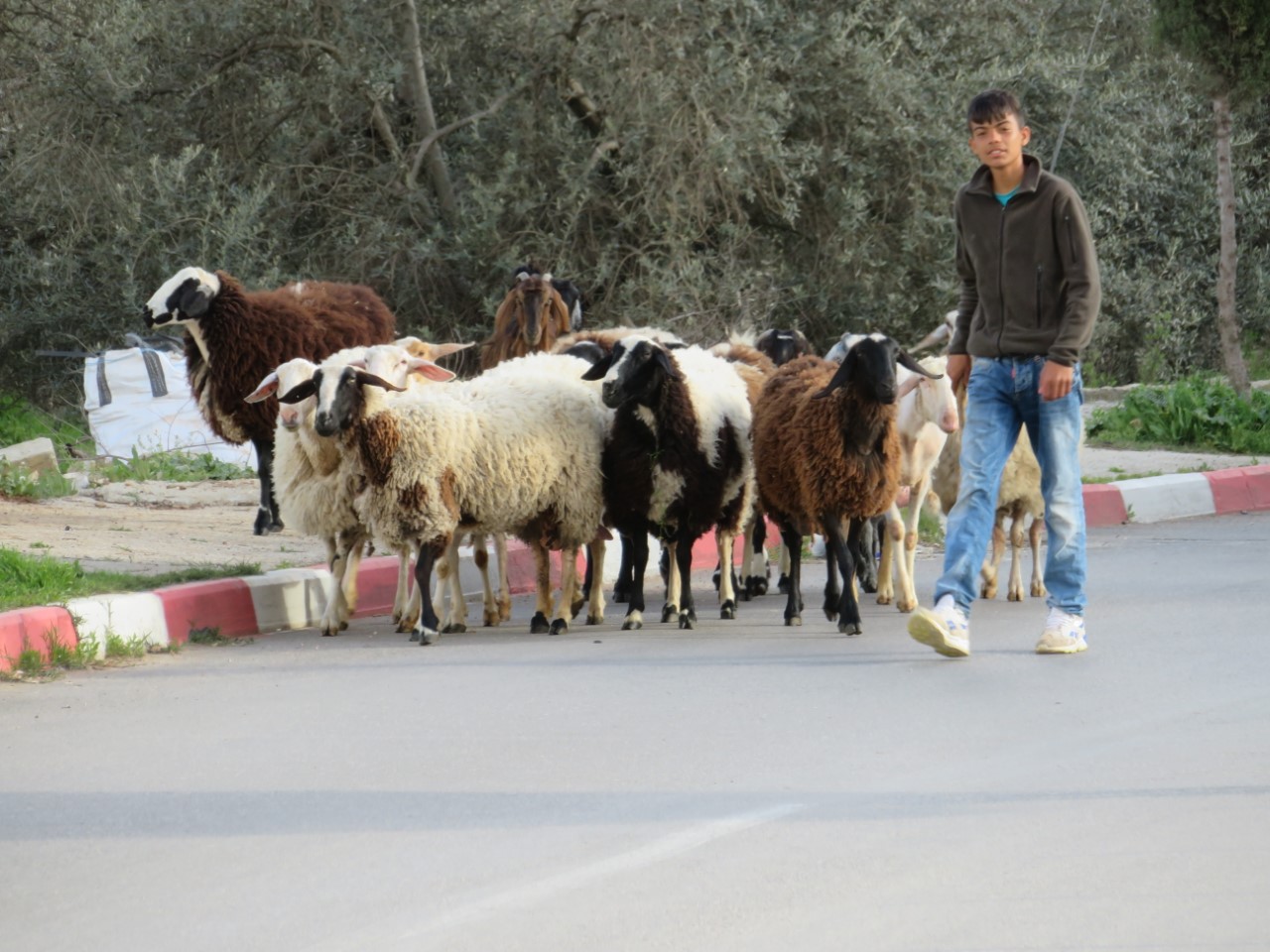A Letter from Doug Dicks, serving in Israel and Palestine
April 2020
Write to Doug Dicks
Individuals: Give online to E200516 for Doug Dicks’ sending and support
Congregations: Give to D506222 for Doug Dicks’ sending and support
Churches are asked to send donations through your congregation’s normal receiving site (this is usually your presbytery)
Dear Family and friends,
On January 28, and following months of anticipation, U.S. President Trump, along with his son-in-law, Jared Kushner, revealed to the world the long-awaited “Deal of the Century”—a plan or blueprint for peace between Israelis and Palestinians. The East Room of the White House was the setting, and present were Israeli Prime Minister Benyamin Netanyahu, dignitaries, senators, millionaires, billionaires, and visitors from around the world, including diplomats from Bahrain, Qatar, the United Arab Emirates, and Saudi Arabia.
Noticeably absent were the Palestinians.
The deal, as it was called, would have given the Palestinians barely fifteen percent of their historic homeland. The land swaps would have given the Palestinians land in the Negev, land bordering Egypt and the Sinai Desert. Israeli settlements in the West Bank, considered illegal under International Law and the Fourth Geneva Convention, would be annexed to the State of Israel, and therefore, recognized as legitimate.
Other key components of the plan included:
• The U.S. would recognize Israeli sovereignty over large areas of the West Bank, including Jewish settlements and the Jordan Valley;
• Jerusalem would remain “Israel’s undivided capital”;
• No Israelis nor Palestinians would be uprooted from their homes, alluding to Israeli settlements in the West Bank remaining in place;
• The Status Quo governing the Haram Al-Sharif (The Noble Sanctuary), also known as Temple Mount to Israelis, would be preserved and Jordan would remain the overseer of this sensitive site; and
• The Palestinians would be provided a capital in eastern Jerusalem, and the United States would pledge to open an embassy there. (It is assumed that the designated site would be in Abu Dis, and not in East Jerusalem, where the Palestinians insist the capital of their future state must be.)
The 181-page report, entitled “Peace to Prosperity,” included 22 different sections, each outlining a specific item related to the plan, including Jerusalem, Borders, Security, Crossings, Refugees, Prisoners, and ending with End of Claims/End of Conflict and a section entitled “Conduct During Negotiations.”
It consisted of two parts: A Political Framework and an Economic Framework.
It has long been said that peace is made between enemies, not friends. Any agreement that does not include or take into consideration the wishes, the aspirations, and the participation of both parties—and in this case, the Palestinians, is considered no deal at all. Palestinian President Mahmoud Abbas labeled it “the slap of the century,” and almost as quickly as it was made public to a waiting world, the “deal” that was to end all deals, fizzled and in the words of the Palestinian President, was seconded to the “dust bins of history.”
Should you wish to read the entire 181 page document, please go to: https://www.whitehouse.gov/wp-content/uploads/2020/01/Peace-to-Prosperity-0120.pdf
The Deal of the Century would soon be trumped (no pun intended!) by the appearance on the world scene of something no less ominous, and something that was neither long-awaited nor anticipated; the arrival of the novel coronavirus, now known as COVID-19. As the outside world was slowly awakening from winter to spring, it would soon be shutting down and going into isolation. Here in Bethlehem, the local economy, which is heavily dependent upon tourism, was quickly grinding to a screeching halt.In late February, all mission personnel of the Presbyterian Church (U.S.A.) were requested to update their contingency plans.
On March 4, while I was at my office at the Evangelical Lutheran Christmas Church in Bethlehem, the order went out from the Palestinian Authority, and in particular, the Ministry of Health, to close and to shut down all places of public gathering. Were it not for their fast-thinking and quick-actions, the virus could have spread faster among the population of the Bethlehem region.
A State of Emergency was declared in the Bethlehem region, knowing that the health system would not be able to cope with the growing health crisis were it to get out of control, and the Palestinian Authority ordered all public places closed in the Bethlehem Governorate. All churches and all mosques were ordered closed for a period of 30 days, as were schools, universities, restaurants, and cafés. The Church of the Nativity, which is used to hosting thousands of visitors a day, closed its doors to the outside world. It remains closed to this day.
It was later revealed that at least 21 people, and later more, had tested positive for the coronavirus. Thirteen of those people were a group of American tourists, staying at the Angel Hotel in Beit Jala, the neighboring town to Bethlehem. Seven of those were staff and workers from the hotel who may have come in contact with those individuals. Immediate action was taken to quarantine the hotel, and the guests inside, including a group of about fourteen Christian visitors from the U.S.
On March 9, the American tour group was able to leave Beit Jala after testing negative for the virus. To read an uplifting article on how the local population catered to and provided hospitality for this group of tourists, see: https://www.middleeasteye.net/news/coronavirus-palestine-bethlehem-quarantine-palestinian-way.
The effect of the lockdown was felt immediately in the Bethlehem region, as tourism to this tiny town—the lifeblood of this community—essentially ended. Hotels, souvenir shops, restaurants, and everything related to the tourism industry ground to a halt. The loss in income was felt right from the start and has left the entire region reeling from the speed with which this tragedy has unfolded and transformed this “little town.”
Regrettably, the Presbyterian Peacemaking Program’s fourth “Mosaic of Peace” trip, which was scheduled and planned for March, has had to be rescheduled for 2021. The 2020 Conference has been rescheduled for Spring, 2021. Many of those who planned to participate in 2020 will be attending, but we have opened the conference up for additional applicants! Registration will be open until November 2020! If you would like to join us next year here in the Holy Land, see: https://www.presbyterianmission.org/ministries/peacemaking/mosaic/.
In the ensuing days, the Presbyterian Church (U.S.A.)’s leadership requested that all mission personnel make immediate arrangements to return home as soon as convenient. However, they were also willing to entertain the idea that those of us wishing to do so could stay, “shelter in place,” and remain in our host countries. I chose to stay, as did most of our mission personnel in the Middle East, thankful that I have a safe place in which to reside, and good friends, neighbors and a support system to undergird my presence here.
For me, it was a personal decision, rooted in our belief in and commitment to the Matthew 25 vision that our church espouses. “For I was sick, and you visited me.” Or you stayed with me. “A prisoner, and you visited me.” Or “under siege,” and you remained with me.
At this time, when our world is consumed with anxiety and fear, with a staggering economic crisis, unemployment, disease, sickness and yes, even death, we are called upon to put our faith where our fear is, while at the same time, exercising extreme caution and common sense amidst this pandemic.
Before the crisis, I enacted my “hunker in place” plan, and stocked up on canned goods, bottled water, jarred sauces and food and such dry goods as pasta, rice, cereals, tuna, and vegetables. The vegetable and fruit markets have remained open, as have small shops where goods can be secured. Pharmacies in the Bethlehem region have remained open as well.
Yet Bethlehem today is a shell of its former self. Likewise, Jerusalem is all but a ghost town, and even cosmopolitan Tel Aviv has not fared any better.
In their Easter Message this year, the Patriarchs and Heads of Churches in Jerusalem reminded us that “this is not the first time that our world has experienced a pandemic.” “However, our present responsibility as people of faith and goodwill is to offer consolation for those who grieve, restoration and healing to those who are sick, and assistance to those who are in need.” To read the entire Easter Message from the Heads of Churches in Jerusalem, please see: http://www.anglicannews.org/news/2020/04/an-easter-message-from-the-patriarchs-and-heads-of-churches-in-jerusalem.aspx.
As of this writing, we are in day 41 of a lockdown, and into the second month. The three cities of the Bethlehem region—Bethlehem, Beit Jala, and Beit Sahour (the Shepherd’s Fields) have been cut off from one another to prevent movement of cars and vehicle traffic. At certain times, the restrictions are eased. Here, in Palestine and in Israel, and according to today’s Ha’aretz newspaper, are the latest figures and casualties that this virus has claimed. To date, 12,200 Israelis have so far tested positive for the coronavirus; 126 people have died. In the West Bank, 316 cases have been diagnosed so far. Two have died. In Gaza, 13 cases have been diagnosed.
Yet amidst the unemployment, job loss, sorrow, sadness, loneliness, illness, and even death, I cannot help but take note of some of the amazing things that are happening to the world around us.
• For the first time in decades, in the region of Punjab, in India, they say the snow-capped Himalayas are visible, even though they are at least a hundred miles away.
• Air pollution over major cities has dissipated, as there has been much less vehicular traffic, and passenger planes have all but disappeared from the skies.
• Fish can be seen swimming in, and swans floating on the now clear waters of the canals of Venice.
• Jackals have been seen in the parks of Tel Aviv. Wild boar are roaming the streets of Haifa. (I’m not sure these are necessarily “good things,” but they are happening!)
I’ve even read where the bear population in California’s Yosemite has quadrupled!
It is almost as if Mother Nature is laying claim once again to what is rightfully hers. It should serve as a painful, sobering reminder of what humankind has done to the earth and teach us to become better caretakers of this most precious resource that we have been entrusted with.
In addition, the unprecedented level with which both Palestinian and Israeli officials have worked closely together, in order to contain and to stop the spread of the virus, has been commendable. That which, during times of relative calm would have been considered unachievable, this tragedy has made possible.
I hope and I pray that this time of self-quarantine, isolation and social distancing has not been too stressful, but rather, has allowed many of us to pause, to pray, to reflect, and to be thankful for the many blessings we have and have had. May we never again take for granted our world and all that God has entrusted to us. We have been so richly blessed.
We are not alone. God has not abandoned us. From behind our closed doors, from behind our shuttered windows, in our fear, in our loneliness and in our isolation, God is with us. Let us not look upon our apartments or our homes as dark tombs, but rather, as places of sanctuary.
Like spring, Easter comes around every year, and it will come around again next year. The joy we feel at Easter was never about time or place, but rather about Christ’s resurrection and triumph over both sin and death, and the comforting assurance that our Savior lives.
Let us continue to do what we profess every Sunday in our churches; pray for the sick and the dying, comfort the lonely, and I might add, check up on friends, neighbors, and one another.
“O Death, where is your sting? O Grave, where is your victory?”
Stay home. Stay safe.
Celebrate with joy! Christ is Risen! Alleluia!
Doug
![]() You may freely reuse and distribute this article in its entirety for non-commercial purposes in any medium. Please include author attribution, photography credits, and a link to the original article. This work is licensed under a Creative Commons Attribution-NonCommercial-NoDeratives 4.0 International License.
You may freely reuse and distribute this article in its entirety for non-commercial purposes in any medium. Please include author attribution, photography credits, and a link to the original article. This work is licensed under a Creative Commons Attribution-NonCommercial-NoDeratives 4.0 International License.
